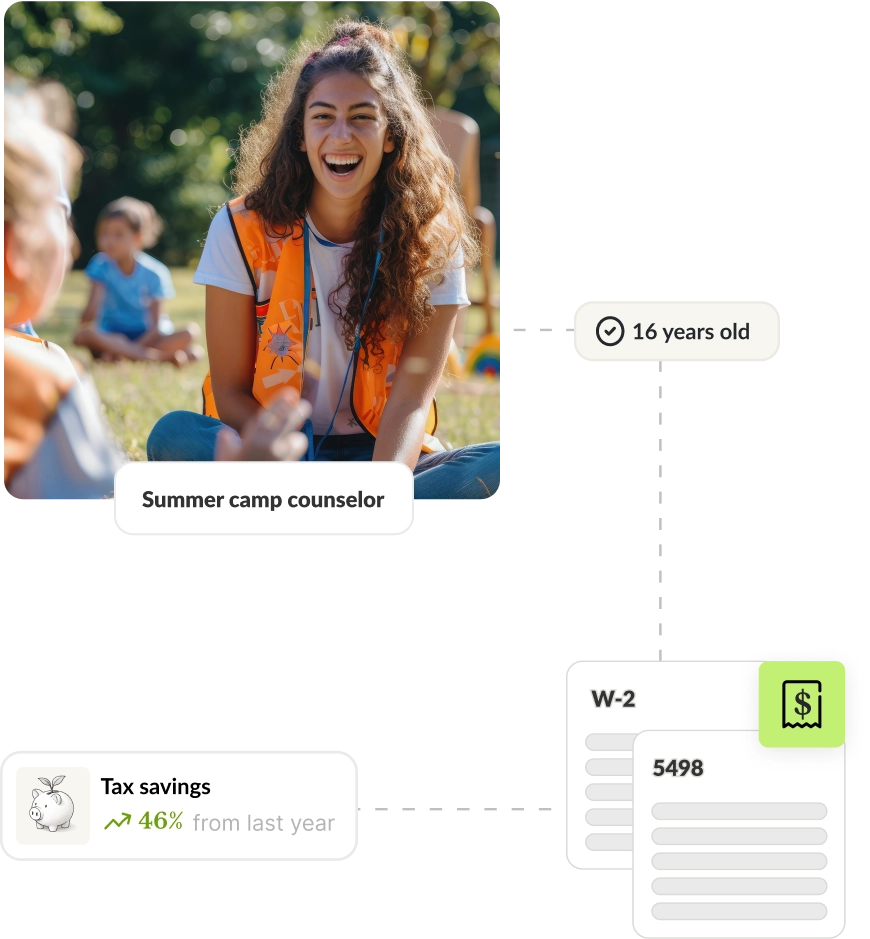2025 Colorado State Tax Deadlines
Colorado Individual income tax filing deadlines and extensions for 2025.
If you are a resident or have been involved in business operations within Colorado, you might be required to file Colorado State taxes. Colorado maintains a flat income tax rate of 4.25%, making it one of the more straightforward State tax systems in the nation. This comprehensive guide outlines the key tax deadlines and considerations applicable to Colorado in 2025.
Colorado business tax deadlines for 2025
C Corporation deadlines and requirements
C Corporations in Colorado must file and pay Corporate Income Taxes by April 15, 2026.
Filing requirements include:
- Complete Form DR 0112 (Colorado Corporation Income Tax Return)
- File online through the Revenue Online (ROL) portal
- File by mail must be postmarked by the due date
- Payment must be made by April 15, 2026
Extension to file taxes in Colorado for 2025
The Extension Deadline for Colorado Corporate income tax returns is October 15, 2026. Colorado automatically grants a six-month extension on filing Corporate income tax returns without requiring separate forms. This is an extension to FILE, not an extension to PAY—payment is still due April 15, 2026.
Pass-through entities
Colorado S Corporation and Partnership tax deadlines for 2025
S Corporations and Partnerships must file in Colorado by April 15, 2026.
Required forms include:
- Form DR 0106 – Partnership and S Corporation Income Tax Return
Extension to file S Corporation and Partnership taxes in Colorado for 2025
The Extension Deadline for Colorado S Corporations and Partnerships returns is October 15, 2026. Colorado automatically grants a six-month extension on filing pass-through entity tax returns, without requiring a separate application. This is an extension to FILE, not an extension to PAY—payment is still due April 15, 2026.
Colorado individual tax considerations for 2025
Filing requirements and income thresholds
Colorado Individuals must file a State income tax return if they are required to file a federal return or if they have Colorado income tax withheld from their pay.
The general rule is that you must file if your federal adjusted gross income exceeds:
- $15,000 for single taxpayers
- $30,000 for married filing jointly
- $22,500 for head of household filers
- $15,000 for married filing separately
Estimated tax deadline for Colorado 2025
Estimated tax payments are due:
- April 15, 2025
- June 15, 2025
- September 15, 2025
- December 15, 2025
Who must make estimated payments
You must make Colorado estimated income tax payments during 2025 if you expect to owe $1,000 or more in Colorado income tax after subtracting your withholding and credits. Individuals with business income, rental properties, or retirement distributions typically need to make quarterly payments.
Individual tax deadline for Colorado 2025
You must file and pay Individual Income Taxes in Colorado by April 15, 2026. Colorado accepts electronic filing through the Revenue Online (ROL) portal, significantly reducing processing time.
Available forms include:
- Form DR 0104 – Colorado Individual Income Tax Return
- Form DR 0104PN – Part-Year Resident and Nonresident Individual Income Tax Return
Extension to file taxes in Colorado for 2025
The Extension Deadline is October 15, 2026, to file your Colorado Individual Income tax return. Colorado provides an automatic six-month extension without requiring separate forms, but you must pay 90% of your estimated tax liability by April 15, 2026, to avoid penalties. This is an extension to FILE, not an extension to PAY.
What Colorado tax professionals need to know
Several key considerations make Colorado's tax landscape unique for 2025:
Colorado's flat 4.25% income tax rate applies to all income levels, making calculations straightforward compared to the progressive tax rates found in other states. The State offers various tax credits, including credits for child care expenses and contributions to charitable organizations.
Electronic filing requirements
Colorado encourages electronic filing for most taxpayers:
- C Corporations can file electronically through Revenue Online
- Partnerships and S Corporations benefit from faster processing through electronic systems
- Individuals can use Revenue Online for free electronic filing
How does Colorado determine residency
Colorado determines residency based on domicile—your permanent home and the place you intend to return. Full-year residents pay tax on all income regardless of source, while part-year residents and nonresidents pay tax only on Colorado-source income.
Colorado's unique tax features for 2025
TABOR refunds
Colorado's Taxpayer Bill of Rights (TABOR) requires the State to refund excess revenue to taxpayers when collections exceed constitutional limits. Individuals may receive TABOR refunds in years when State revenues grow beyond specified thresholds.
C Corporation estimated payments
C Corporations with expected annual tax liability over $5,000 must make quarterly estimated payments on the 15th day of the fourth, sixth, ninth, and twelfth months of their fiscal year.
Alternative minimum tax
Colorado does not impose an alternative minimum tax on Individuals or businesses, simplifying tax planning compared to other states with complex alternative tax calculations.
Sources
- Colorado Department of Revenue Due Date Guide
- Colorado Partnership & S Corporation Filing Information
- Colorado Business Income Tax Information
Don't miss State tax deadlines – Join Instead
State tax deadlines are approaching fast. While you're scrambling to gather documents and figure out complex deductions, you could be missing thousands in potential savings.
Instead's AI-driven platform does the heavy lifting for you—automatically identifying tax strategies, monitoring your accounts for savings opportunities, and ensuring you claim every deduction to which you're entitled. No more guesswork, no more missed opportunities.
The material discussed on this page is meant for general illustration and/or informational purposes only and is not to be construed as investment, tax, or legal advice. You must exercise your own independent professional judgment, recognizing that advice should not be based on unreasonable factual or legal assumptions or unreasonably rely upon representations of the client or others. Further, any advice you provide in connection with tax return preparation must comply in full with the requirements of IRS Circular 230.
Please note that if any due date falls on a federal or state holiday or weekend, it may be adjusted to the next business day. Always verify current deadlines with the appropriate tax professional and authorities.
Looking for a different year?

























